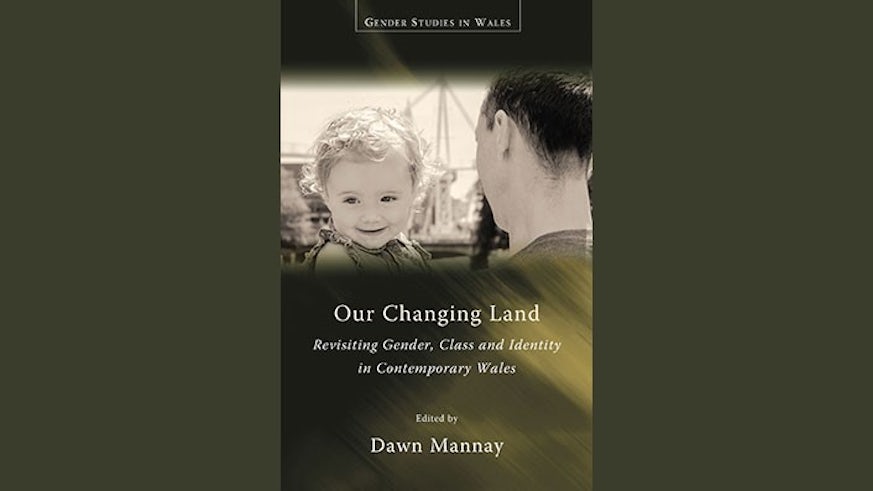Our Changing Land
15 June 2016

A new research publication reflects on twenty years of changes in Wales and argues that more changes are needed to attain a more equal, inclusive and sustainable nation.
Our Changing Land: Revisiting Gender, Class and Identity in Contemporary Wales, edited by Dr Dawn Mannay of Cardiff University School of Social Sciences, brings together a range of eminent Welsh writers, academics and creative artists to examine what is distinctive about Wales and Welshness, and to consider the future of Wales.
The collection reflects on the past two decades of big changes in Wales in relation to gender, class, poverty, politics, the environment, the media and the Welsh language.
Among the findings from the book:
- Welsh-speaking children have a stronger sense of Welsh identity but view the language as an advantage for future employment rather than as the language of social life (Non Geraint)
- The cultural legacy of the ‘Welsh Mam’ and the invisibility of emotional labour mean that women face challenges in the home (Dawn Mannay), in higher education (Melanie Morgan), and in the workplace (Jane Salisbury)
- Many women in Wales find it increasingly hard to ‘make work pay’ given their over-concentration in low-skilled, low-paid, part-time work (Alison Parken) and the rise of zero-hours contracts create additional vulnerabilities, which current policies in Wales are unable to alleviate (Caroline Lloyd)
- Despite nearly 15 years of regeneration policies in Wales, very little has changed for the poor (Dave Adamson) and young working-class men’s identities in post-industrial communities are problematized by the lack of traditional work (Michael RM Ward)
- The overemphasis on the number of women elected to the Assembly has created the false impression that devolution has transformed gender relations in Wales, when this is far from the case (Paul Chaney)
- Within the ‘changing land’ of present-day Wales, gender equality in the literary field is no longer a distant prospect, however, women in the arts continue to raise issues of inequality in the themes of their work (Jane Aaron)
- The future of clean energy in Wales, and indeed the UK, is clouded in uncertainty, which illustrates the ambiguous status of devolved government in Wales as an arena of conflict resolution (Karen Parkhill and Richard Cowell)
- The arrival of the National Assembly for Wales and the Welsh government has enhanced concern about the ever changing and increasingly fragmented mediascape in Wales (Hugh Mackay)
Original rap poetry and songs have also been written, produced and recorded by the young Welsh artists KAOS (featuring Chantelle), Tasha Harvey and Jamie Feeney aka Sapien for the themes running through the book. These musical reflections on Welsh life, created in collaboration with the community organisation Ministry of Life, offer an opportunity to explore issues of ethnicity, body image, and bullying, as well as showcasing the active political voice of young people.
The book also features photographs and graphic art by Ian Homer and Nathan Bond.
Dr Mannay said: “There is much to celebrate in post-devolution Wales and we have seen significant changes for the better where the Welsh Government has governed in a distinctly ‘Welsh way’. However, there are also substantial concerns about marginalisation, in-work poverty and sustainability, which need to be addressed urgently.
“Austerity has already disproportionally impacted on the most marginalized communities in Wales, and the Welsh Government will need to carefully consider how this trend can be reversed if it is to both stand for and serve the people of Wales.”
Our Changing Land: Revisiting Gender, Class and Identity in Contemporary Wales is published by the University of Wales Press and will be available in paperback from 15 June 2016.
The music videos accompanying the book can be found on the Ministry of Life's Youtube channel.
